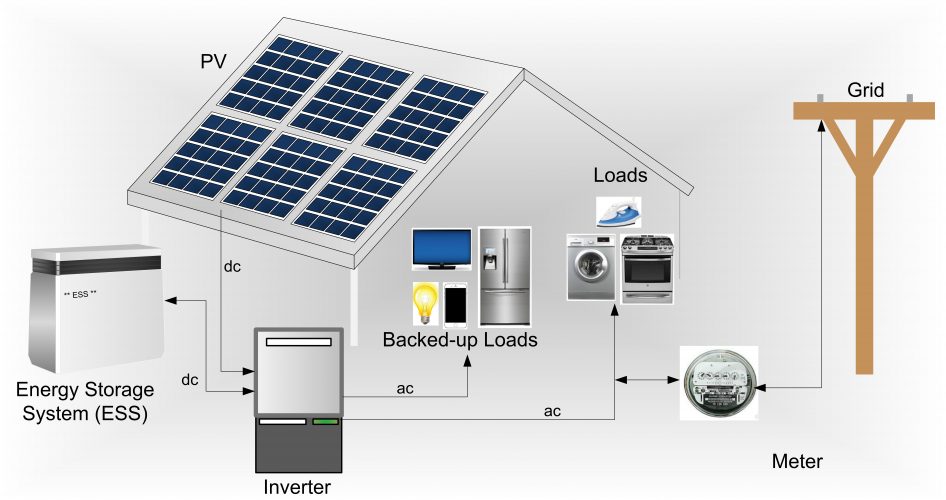Choosing the right battery for a home energy storage system involves considering various factors to meet specific requirements. Here are key considerations when selecting a battery for home energy storage.
- Energy Storage Capacity: Determine the amount of energy storage capacity needed based on your household’s energy consumption patterns and the desired backup duration during power outages. Consider both daily cycling needs and occasional deeper discharges.
- Power Rating: The power rating of a battery is crucial for supporting high-demand appliances or backup power needs. Ensure that the battery can provide sufficient power to meet peak loads.
- Cycle Life: Look for batteries with a high cycle life, indicating the number of charge and discharge cycles they can undergo before significant capacity degradation. A longer cycle life is essential for maximizing the lifespan of the battery.
- Voltage and Compatibility: Ensure that the battery’s voltage and compatibility match your existing or planned solar energy system, inverter, and other components. Consistent voltage levels are crucial for proper integration.
- Chemistry Type: Consider the battery chemistry that best aligns with your requirements. Common options include lithium-ion, lead-acid, and newer technologies. Lithium-ion batteries are popular for their high energy density and longer cycle life, but lead-acid batteries may be more cost-effective in certain situations.
- Round-Trip Efficiency: Evaluate the efficiency of the battery in converting stored energy back to usable power. Higher round-trip efficiency ensures less energy loss during the charging and discharging process.
- Physical Size and Installation: Consider the physical size and weight of the battery, especially if space is limited. Some batteries are designed for easy wall-mounted installation, while others may require more space.
- Temperature Tolerance: Batteries can perform differently at various temperatures. Choose a battery with good performance in your local climate conditions. Some batteries may require additional thermal management systems.
- Safety Features: Prioritize batteries with built-in safety features, such as overcharge and over-discharge protection, thermal management systems, and fail-safes to prevent hazardous situations.
- Warranty and Manufacturer Reputation: Check the warranty offered by the battery manufacturer, including the coverage period and terms. Additionally, consider the reputation of the manufacturer and the product’s track record in terms of reliability and customer satisfaction.
- Cost and Total Cost of Ownership: While upfront cost is a consideration, also evaluate the total cost of ownership over the expected lifespan of the battery. Consider factors such as maintenance requirements, replacement costs, and potential energy savings.
- Integration with Solar Systems: If you have or plan to install a solar energy system, ensure that the battery is compatible and easily integrable with your solar inverter and other system components.
It’s recommended to consult with a professional installer or energy consultant to assess your specific needs and help you choose the most suitable battery for your home energy storage system. Keep in mind that technology is continually evolving, so staying informed about the latest developments in battery technology is also beneficial.


